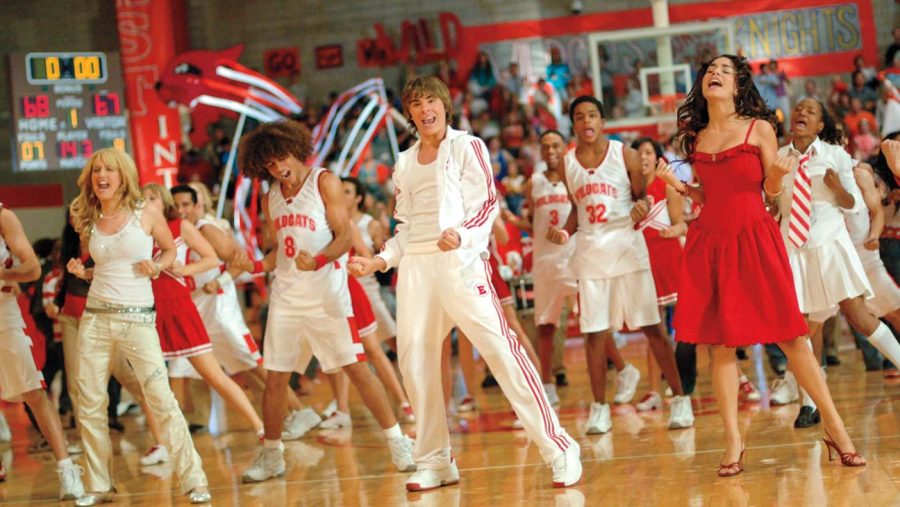Modern cinema can’t get college admissions right
“High School Musical” is just one of the many additions to cinema that distorts the process of applying to college.
As a child, I recall watching the characters of my favorite TV shows and movies traverse their college application experiences. Though unable to understand the process, I remember feeling unmoved when Teddy from Good Luck Charlie was overjoyed as she opened her acceptance letter to Yale. I remember feeling indifferent when Gabriella received early admission to the Stanford Honors Program in High School Musical. I remember looking at the college admissions process at the time and thinking nothing of it.
Now, as a senior, I am going through this exact same college process. Looking back on these productions, I realize — wow, these storylines don’t seem real at all.
In today’s turbulent admissions process, it takes more than a perfect GPA and test scores to get into top universities; colleges instead look at letters of recommendation, extracurriculars, and essays to differentiate top candidates from your run-of-the-mill straight-A student.
So, how did Teddy get into the Ivy League when her main hobby was filming low-quality home videos for her infant sister to enjoy when she grew up? How was Gabriella’s participation in the Scholastic Decathlon not seen as “trite” or “unoriginal,” given that many college websites encourage students to pursue niche hobbies and not engage in hobbies in which most other students also participate?
It’s frustrating how the media’s depiction of a college application — essentially the culmination of a high school student’s proudest achievements and hard work — can’t seem to accurately display how difficult the college process truly is. It’s as if the same movies we love and respect are simultaneously culprits of inaccuracy, failing to meet our expectations by twisting truth in their portrayals of the college process.
Modern cinema’s favoring of prestigious universities may also make other college acceptances to lesser-known schools seem less honorable, prompting both kids and adults to believe that only the top 10 colleges in the nation are worth applying to. This rigidity in belief hurts the state schools that are already losing up to 28% of their applications each year, according to the New York Times. And with less applications comes the plight of less funding from application fees and prospective tuition – it’s an indirect harm caused by the entertainment industry.
I recognize that these inaccurate college representations in the media aren’t causing widespread poverty, starting wildfires, or even thwarting world peace. But high school students deserve to see their hard work to even apply to college depicted accurately in their favorite movies. And though we don’t commonly watch movies to view and enjoy a perfect reality, it would still be nice for the media to honor high school students’ college endeavors with accuracy.
After all, we teenagers spend countless hours on our applications every year, making sure to dot our i’s and cross our t’s – at the very least, we deserve thirty seconds of screen time that commemorate these experiences with truth.



